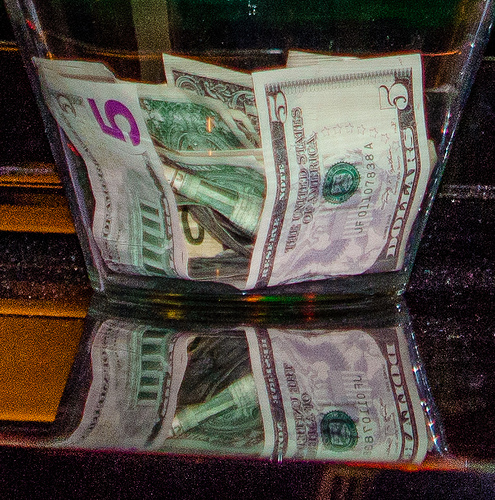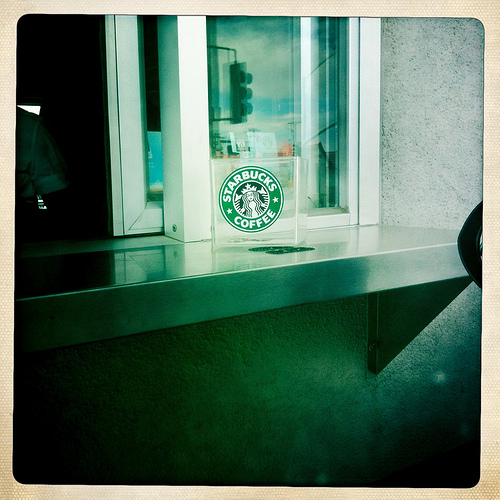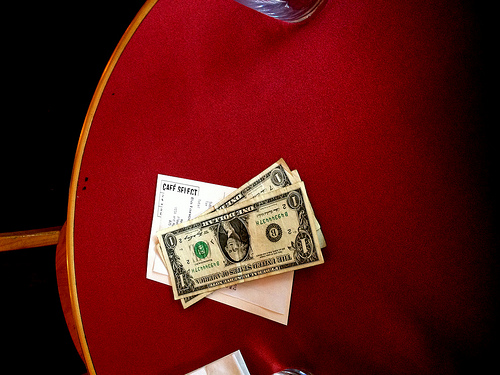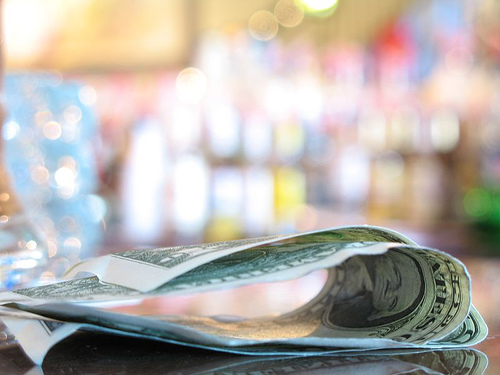
It's a topic that is guaranteed to make people cringe: tipping. Who should you tip, how much, and why?
This is a topic where even the experts are often not in agreement. If there is such a thing as a "tipping expert."
Why tip at all?
Many people make the case that tipping your server just means that you are buying into a system which is inherently unfair. And I agree that they have a point, but stiffing the wait staff is not the solution.
In America, restaurant workers get paid far less than minimum wage, with the excuse that "they make up for it in tips." If this sounds crazy to you, then congratulations, you are probably from one of the many countries in the developed world where restaurant workers make actual sane salaries, and tipping is nonexistent.
Restaurant workers who get tips can legally be paid as little as $2.13 per hour. Most of them are lucky to make UP TO minimum wage once you include tips. It is a very hard way to make a living.

Image courtesy Flickr/Fifth World Art
How does tipping guarantee good service when I tip AFTER the meal?
This is a common source of confusion. When people say that "tipping guarantees good service," this statement is meant in the aggregate. Someone who makes 1/3rd of their income from tips is going to work harder (so the theory goes) to provide good service.
Obviously the server isn't going to get your tip, then travel back in time to retroactively adjust the level of service they provide to you, based on the size of the tip you gave them.
How much should you tip?
Personally, I err on the side of overtipping. I have worked a lot of crappy jobs in my life, and I feel like that extra buck is not going to kill you, but it could make a big difference to the server. Also, if you don't round up your tip to the nearest dollar, I definitely won't say anything about it, but I will probably silently judge you.
The standard advice is 10% minimum tip, 15% is average, and 20% is a nice tip.

Image courtesy Flickr/E Von Zita
Cash or card?
If you have the cash for the tip, use that. At most places, tips put on cards are collected, taxed, possibly have a processing fee deducted, and paid out at the end of the week.
By comparison, cash tips are usually collected and distributed at the end of the night. Also, servers can under-report cash tip to the IRS. (Are you really going to judge them for this?)
If you don't have the cash for a tip, don't stress it. It's one of those, "If you can, do, but if you can't, don't worry about it." Trust me, no server is going to turn down a tip just because it was put on a card instead of paid in cash.

Image courtesy Flickr/KatharineKenny
How do you calculate a tip?
If you have a cell phone, I can guarantee you that phone has a calculator on it. Enter the amount of the bill, and multiply it by the tip. To get the amount of the tip, just move the decimal point two places to the left. For example, 15% becomes .15.
So if you want to calculate a 15% tip on a $21.16 bill, you would enter:
21.10 x .15 = $3.16
Want an easier way to do it in your head? We're going to calculate 10%, then double that.
Calculating 10% of a number is easy, just move the decimal point one place to the left. 10% of 21.10 is 2.11.
Then double that, and you get $4.22. Easy!

Image courtesy Flickr/KevinElliottChi
Edge cases
What should you tip the pizza delivery person? I have it on good authority (from a former pizza delivery person) that a rule of thumb is $1 for every $10 of your order, with a minimum of $2.
How about the coffee barista, or any other tip jar situation? Two choices here: either stick a dollar in the jar, or drop in the change you get from your order. (Feel free to toss in other change from your pocket.)
Don't worry about leaving a tip in a tip jar, by the way. It's not nearly as big a deal as not leaving a tip at a restaurant, and the person on the other side of the counter knows it.
Main image courtesy Flickr/Dave Dugdale

0 comments